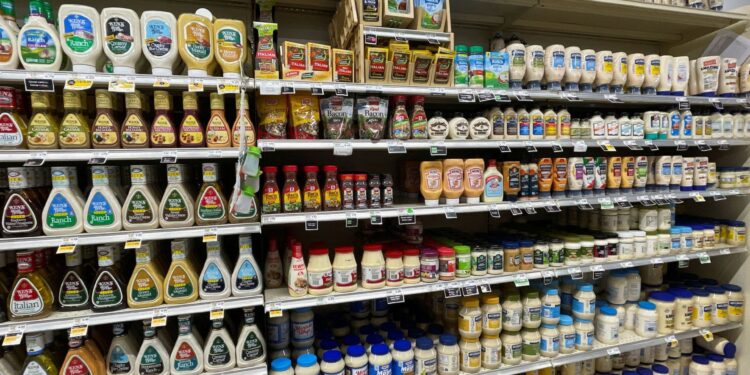The world’s major food companies have launched consecutive warnings this week that the burdens exacerbated consumers, in light of the high prices of basic commodities such as cocoa and cocoa, and the increasing pressure resulting from the policies of US President Donald Trump, according to a report published by Bloomberg.
Pepsico .. Decreased expectations due to the fees
“Pepsico” – the owner of brands such as “Doritus” and “Pepsi” – has reduced its annual expectations for profits, attributing this to the “commercial opposite winds” and the deterioration of consumer morale. The company indicated that the cost of production rises, while the demand for its products slows from snacks and soft drinks.
This comes at a time when the US Department of Health and Humanitarian Services, led by Robert F. Kennedy, the son, to prohibit the use of industrial food dyes extracted from oil, which are components that are included in many Pepsico products, in addition to campaigns aimed at reducing the consumption of sugary drinks.
Nestle .. double prices in prices
As for the Swiss “Nestle”, which produces “Nespresso” coffee and chocolate “Kit Kat”, it was forced to raise their prices in double proportions in multiple markets to counter the sharp rise in cocoa and coffee prices.
In statements to the administration, the company confirmed that the consumer demand remained weak despite the price amendments.
Unilever .. Emerging market pressure
As for “Unilever”, which achieves about 60% of its revenue from emerging markets, it recorded a decrease in sales volume despite the high revenues resulting from raising prices.
The declines were concentrated in Latin America due to the high interest rates, and in China, where the demand was generally declined.
Danone .. orientation to health supports growth
In turn, the French “Danone” benefited from increased demand for high -protein yogurt in North America, and infants in China.
The company seeks to take advantage of the consumers ’orientation towards healthy food, especially with the spread of weight loss drugs such as” Weghoufi “from” Novo Nordsk “.
Danone is also betting on the aging of the population to enhance the demand for its specialized food products.
Rising burdens
Companies assert that consumers’ ability to endure will depend on the developments of the trade war. France, in the words of billionaire Bernard Arno, has called on the European Union to reach an agreement with Washington to protect wine producers from new drawings.
For its part, Japan is considering increasing its imports of rice and American soybeans as a negotiating initiative in the face of Trump’s duties.
As for China, its imports of many American goods have reduced to very low levels, but to scratch in some cases such as wheat, which gives countries such as Brazil and Argentina an opportunity to compensate for the American share of the global market.
Bloomberg concluded its report by alerting that the complexity of the trade scene and volatility in customs policies may lead to rearranging supply and food chains on a global scale, in light of reports of American farmers resorting to bankruptcy at high rates, and expanding major food companies such as Brazilian BRF in Saudi Arabia to enhance regional food security.
As global trade turmoil continues, it appears that consumers around the world – especially in developing markets – will face more rises in food prices, and more challenges in maintaining a healthy and affordable lifestyle.



